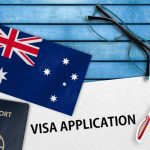If you’re trying to understand the requirements to immigrate to Canada or what immigration program you’re best suited for, you’ve come to the right place.
Canada is one of the most welcoming and multicultural countries in the world, it attracts thousands of immigrants every year, and they’re still looking to welcome more people! If you are considering immigrating to Canada, you must know the various requirements involved in the process. From understanding the different immigration pathways and eligibility criteria, to meeting language proficiency standards and providing necessary documentation, several factors can influence your ability to successfully immigrate to Canada.

Canada has different immigration pathways, such as Express Entry, Provincial Nominee Programs, Canadian Experience Class and Family Sponsorship. You can also immigrate to Canada via the study route. In all of the immigration pathways, priority is given to applicants who possess exceptional education, expertise, and entrepreneurial abilities and who have high earnings potential.
Learn how to start your Canada Permanent Residency application here.
This post provides a comprehensive guide on the Canadian requirements for immigration, considering each pathway and what you need to know to make an informed decision about immigrating to Canada.
Canadian Immigration Pathways
As mentioned before, immigrants can come to Canada through any of the four pathways and the study route. Let’s have a look at these pathways.
-
Express Entry Pathway
Candidates with a university or college degree, relevant work experience, and moderate English and/or French proficiency are considered ideal.
They have to open a profile on the Express Entry system and register. This system determines their eligibility by scoring them points. These points are assigned based on age, education level, language proficiency, and work experience. The highest scores are awarded to individuals between the ages of 20 to 29 years.
Additionally, the better the person’s university degree, the more points they will receive. If a person has two Bachelor’s degrees and/or a Bachelor’s degree and a Master’s degree, they earn higher points. Knowledge of French is also advantageous, as French is another official language in Canada.
For work experience, only skilled occupations count, and there are extra points for those who have worked in Canada before applying for immigration. However, the most significant factor, worth 600 points out of 1,200, is an employment offer from a Canadian company.
-
Provincial Nominee Program
The PNP is a program that allows provinces and territories to nominate individuals for permanent residency based on their unique labour market needs. Canada has ten provinces and three territories. One of the requirements of immigrating to Canada through this pathway is that the candidates must first apply to the province of choice. When they are accepted, they apply via the Express Entry system.
-
Family Sponsorship
Canadian citizens or permanent residents who are at least 18 years old and based in Canada can sponsor their relatives to immigrate to Canada. Relatives could be your spouse, common-law partner, dependent children, parents, or grandparents.

The sponsorship application is a two-step process: first, the sponsor must apply to sponsor their relative. Once the application is approved, the sponsored family member can then go on to apply for permanent residency.
To be eligible to sponsor a family member, the sponsor must prove that they have enough income to support the relative and will not rely on social assistance from the government. They must also sign an undertaking to financially support the sponsored relative for a certain period .
The sponsored relative must meet certain eligibility requirements, like medical and criminal admissibility, and pass a background check. The processing time varies depending on the country of origin of the sponsored relative and the type of relationship.
-
Canadian Experience Class
The Canadian Experience Class is a good option for people with Canadian work experience who want to become permanent residents. It recognizes the contributions of individuals who have already established themselves in the Canadian labour market. Its streamlined application process makes it a popular pathway to permanent residency.
One requirement of immigrating to Canada via the CEC is that applicants must have at least one year of skilled work experience in Canada in a National Occupational Classification (NOC) job. They must also meet language proficiency requirements in English or French.
Candidates would create an online profile through the Express Entry system to apply for the CEC. Afterwards, they will be assigned a Comprehensive Ranking System (CRS) score based on age, language proficiency, education, and work experience.
-
Study Route
This is one of the easiest routes with less complex requirements for immigrating to Canada. Canada is a popular destination for international students who want to study and potentially immigrate to the country. Canadian universities and colleges offer high-quality education, diverse cultural experiences, and affordable programs catering to international students’ needs. Check out this article: Seven Cheapest Canadian Universities for International Graduate Students to learn more about affordable schools in Canada.

To immigrate via the study route, international students must first gain admission to a Canadian institution, either for undergraduate or postgraduate studies, get a study permit, and complete their course of study. Afterwards, they will be eligible for a Post-Graduation Work Permit (PGWP) that allows them to work in Canada for up to three years, which increases their chances of becoming permanent residents.
Differences Between the Express Entry Pathway and the Provincial Nomination Program
These two pathways share similarities with some of the processes; however, there are differences in the process and conditions.
One of the differences is that the Canadian government runs the Express Entry pathway. In contrast, individual provinces and territories run the PNP in Canada.
Again, the Express Entry pathway uses a point-based system known as the Comprehensive Ranking System to pick candidates and prioritizes specific requirements like minimum language skills while the PNP prioritizes job offers and gives priority to those that can work in industries, facing labour shortages and contribute to the economy. So if you have a written job offer from a Canadian company, you have a higher chance of immigrating to Canada.
Another distinction is that if a candidate immigrated through the Express Entry pathway, they could move and work in any province in Canada except Quebec, as it has its immigration program. On the other hand, immigrating via PNP mandates that you must live and work in the same province for at least two years before moving to another province.

Finally, the Express Entry pathway has a shorter processing time than PNP. It takes six to eight months for Express Entry applications to be processed, while for PNP, it takes about 21 months.
Canadian Requirements for Immigration
Aside from the specific requirements of the different pathways, there are a couple of general requirements for immigrating to Canada.
-
Language Proficiency
To be eligible to immigrate to Canada, you must meet the eligibility criteria for one of the immigration pathways. Then you must communicate in one of Canada’s official languages (English or French) to be eligible to immigrate. You are usually required to take a language test to prove your proficiency in either English or French.
-
Work Experience and Education
You must have completed at least a secondary school education and have relevant work experience to be eligible for immigration. Some pathways require that designated organisations like the International Qualifications Assessment Service IQAS and International Credential Assessment Service of Canada assess and recognise your education and work experience.
-
Health and Security
To be granted Canada immigration visa, you must pass a medical examination to ensure that you are fit and free of any medical conditions that threaten public health or safety. You must also pass a security background check to ensure you do not pose a security risk to Canada.
-
Finances
You must prove that you have enough money to support yourself (and your family members) in Canada. The amount of money depends on the number of dependents accompanying you to Canada and the immigration program you are applying under.

Read also: Strategies to Fund your Immigration Plans: Japa 101 for Nigerians.
-
Application Process
You must submit a complete and accurate application to the immigration authority. The application process varies depending on the program you are applying for, and can include submitting various forms, documents, and fees.
Immigrating to Canada demands a lot. But with these requirements put in place and adequate research and preparation, you should start counting down to your relocation.
Also recommended: Step-by-Step Guide to Starting your Canada Permanent Residency Application















[…] mentioned in our previous article on Canadian immigration routes, Canada has three immigration programs managed through Express Entry. Candidates can immigrate to […]
[…] See also: Canadian Immigration Routes: What programs can I apply for? […]
[…] some cases, having a Canadian work permit precedes applying for permanent residency in Canada. Many Canadian immigration routes require applicants to be eligible for Canadian work experience, and a valid work […]
[…] a fact that some countries like Canada need people, giving their generous immigration programs and pathways that have enabled people to […]
[…] See also: Canadian Immigration Routes: What programs can I apply for? […]
[…] Read this post on Canadian Immigration Routes […]
[…] and Citizenship Canada (IRCC) has held its 14th draw of 2023, inviting 4,800 candidates in an all-program draw. Invited candidates required a minimum Comprehensive Ranking System (CRS) score of […]
[…] Program, the Canadian Experience Class, the Federal Skilled Trades Program, and a portion of the Provincial Nominee Program. The recent changes in the Immigration and Refugee Protection Act, which allows the selection of […]
[…] Also read: Canadian Immigration Routes: What programs can I apply for? […]